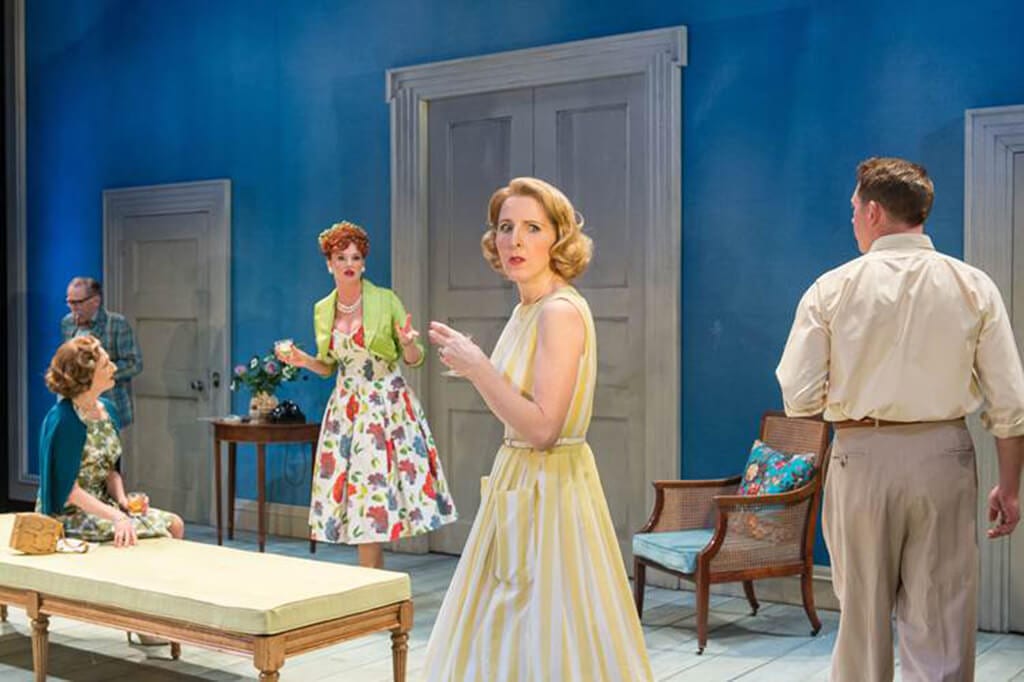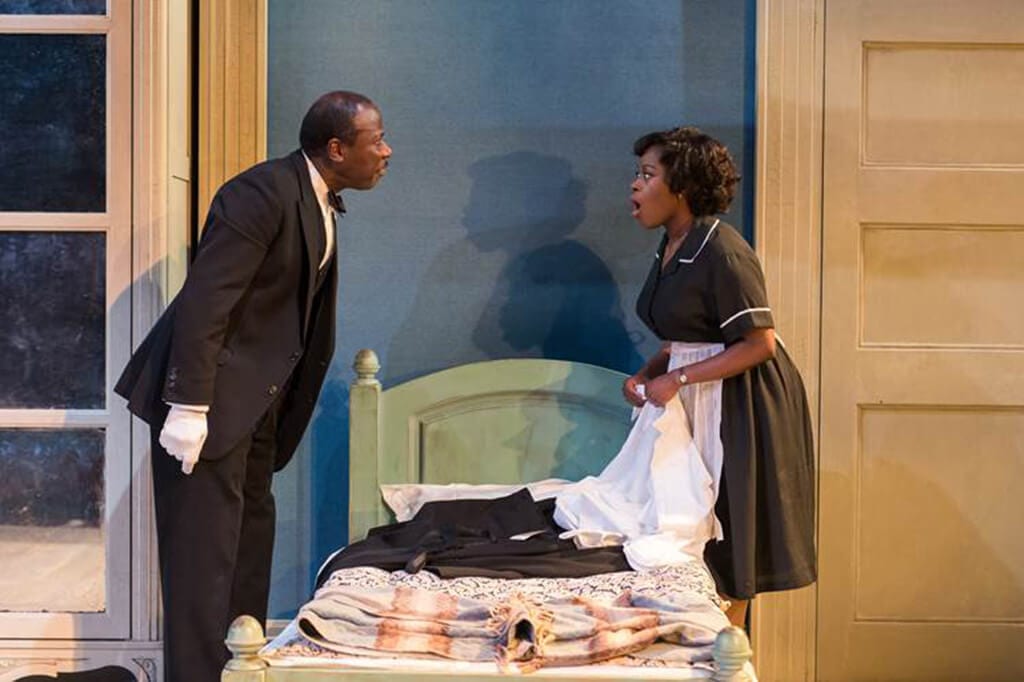Welcome Home, Captain Fox! is a distinctly war-time play, set amidst a time when the world is whirring along to the paranoid beat of the Cold War, and the world of American pop culture buzzes about on the peripheries. Captain Jack Fox, plagued by amnesia and caught in the manipulations of social climber, Mrs Marcee Dupont-Dufort, is pulled into the surrealist Hamptonite social set, ostensibly returned to the family he lost but cannot remember.
Mark Thompson’s elegant stage design transports you to a kind of American drawing-room drama, whilst Yvonne Milnes’s costumes evoke the technicolour of riot of fashion in 1950’s America. The Fox family are rich Hamptonites who wear perpetual sneers, and are forever shouting down the hallways for another shot when they’re not puffing away at cigarettes and making backhanded ripostes at each other. It’s no wonder then that we find Captain Jack Fox stuck with an identity crisis, determined to escape from his proclaimed family.
Welcome Home, Captain Fox’s source text is Le voyageur sans bagage: written by Jean Anouilh, acclaimed French playwright, “The Traveller without Baggage” deals with a real-life story of a veteran’s loss of identity and his subsequent return to a forgotten home and life. The work explores the meaning of identity, and his family’s desperation to gain him back—all elements adapted by Anthony Weigh’s play. Weigh’s adaptation is skilful in its blending of comic language and the deeply distraught psychosis of a man in search for who he is. We are never quite sure about the identity of the man deemed to be Jack Fox—Rory Keenan’s mien of constant befuddlement assists in that regard—but Weigh’s adaptation is a masterclass in comic exchange. His understanding of the fascinating weightlessness of identity is apparent; with a change of clothes, like a stray dog being adopted into a new home, you can become anyone. Society may impress upon you the person you ought to be—as Marcee Dupont-Dufort’s social aspirations implies—but identity is a two-way game, and personal choice is just as important: Fox declares, “If I refuse to own you, you can’t own me either.” But the choice is besides the point: identity isn’t something you’re born with, it’s just something strolling along the side that you may or may not pick up.
However, Weigh’s text (and Blanche McIntyre’s overall direction) drop just short of the mark at times. The play is mostly all drawing-room, with very little actual drama thrown into the mix. We get hints of it at Jack Fox’s difficult relationship with his mother, the distant and aloof Mrs Fox—but they never quite get to an actual confrontation, with their interactions always working away from the mark. His weird relationship with his witty (if deranged) sister-in-law and former paramour is never quite resolved. Much of the play seems to exist in a state of unfinished-ness, and though charming the result feels a little insubstantial.
That being said, the production succeeds by the efforts of a stellar cast. Rory Keenan is all confused existentialism, contrasting well against the staid, sure brother, George Fox (Barnaby Kay). The cake and champagne must go to the wonderful performances of Sian Thomas’s Mrs Fox, and Fenella Woolgar’s Valerie Fox. Both women carry the show, at turns witty and vulnerable at the effects of Jack Fox’s life on theirs. They are the driving engine of the play, even as Jack Fox shies away from them and their Hampton-hell.




